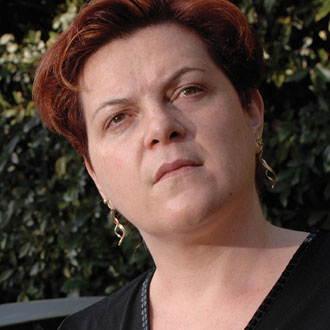A killer instinct

It was a Friday afternoon in the cold winter of 2002. I was still relatively new to the job and still quite worried about long afternoons on call.
One of the patients on my list was a young man, in his late twenties, who presented with a problem of sore throat. ‘Great!’, I thought, ‘an easy in and out consultation.’ But I couldn’t have been more wrong.
This was the third consultation the patient had in the week for the same problem. He saw the nurse practitioner first, who prescribed penicillin.
Then he saw a partner of the surgery, who prescribed another course of penicillin but with no help at all.
The patient was complaining of a bad sore throat and even talking was causing pain.
‘I am sure I know what this is,’ I thought (with the classical cocky arrogance of the young GP). ‘I am sure it is quinsy!’.
But, when I looked at the patient’s throat, I couldn’t see anything. Not even a hint of redness or swelling of the throat, let alone a sign of an abscess.
Other writing competition entries
(Winner) Dr Nishma Manek: ‘Let me show you something, doctor’
(2nd place) Dr Ellie Cannon: ‘Why hold back the tears?’
(3rd place) Dr Roger Henderson: ‘A presumptive diagnosis’
(Under-35s winner) Dr Ahmed Rashid: ‘The famous razor of Occam’
I looked at him in disbelief. What is going on? I thought.
It was then that I noticed the patient seemed to stutter slightly when speaking to me. I have never seen this patient in my life. How do you ask a patient: ‘Excuse me—do you stutter, by any chance?’
But even if reluctantly I did indeed ask him the question and he answered ‘yes’ — but only for one week. He described some difficulty in pronouncing the words of some objects, like glass or cup. All the rest of the history and examination was unremarkable, and his blood pressure, temperature, pulse and neurological examination were spotless.
But I wasn’t happy. I didn’t know what but I knew something was wrong – really wrong.
I picked up the phone (by now running 30 minutes late in my surgery) and spoke with the admitting nurse for acute medicine. She didn’t want to accept the patient – the case was too complex she said. So she put me through the registrar. He didn’t want to accept the patient as he was not acutely unwell. The registrar advised the patient undergo a CT scan as an outpatient, but I wasn’t happy. I had then to call the consultant medic at home –and , believe you me, he wasn’t a happy bunny.
In the end, after a true verbal combat on the phone, he accepted the patient to hospital.
I didn’t hear anything for two months. One day a letter came from our tertiary care hospital. When seen in hospital his head scan showed two large brain abscesses. He had to be airlifted to the nearest neurosurgery centre where he had emergency brain surgery and abscess drainage that night.
Final diagnosis was brain abscesses caused by toxoplasmosis—the patient had worked as a chef in the restaurant of a local hotel.
He had a long stay in ITU and has been left with epilepsy as a result of the abscesses but he is alive and well otherwise.
He came and see me in the surgery six months after. He entered the room, sat down and said: ‘Doctor, I come here today to say thank you — you saved my life. I owe you my life’.
That day was a good day for me – the best ever. One I will never forget.
Dr Pamela Barcella is a GP in Woodbridge, Suffolk
<<< More from Pulse’s Writing Competition 2015
Pulse October survey
Take our July 2025 survey to potentially win £1.000 worth of tokens










